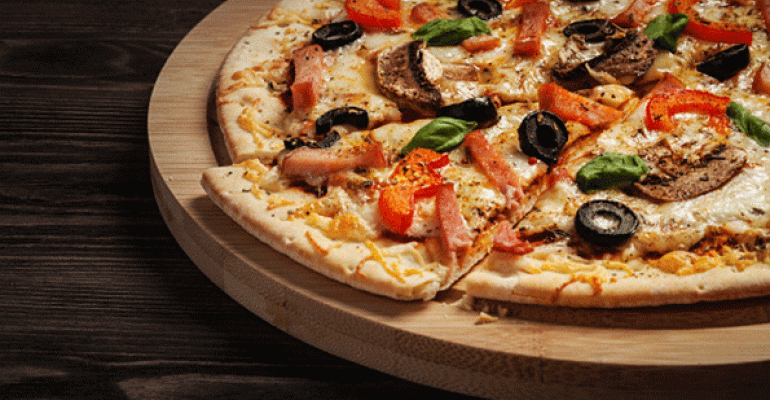Pieology’s acquisition of Project Pie last month marked the beginning of what could be some big changes in the fast-casual pizza world.
Rancho Santa Margarita, Calif.-based Pieology, with 102 units open, picked up the roughly 30-unit Project Pie, which was based in Carlsbad, Calif. At least four Project Pie units will be converted to the Pieology brand, and Pieology officials say they are in talks with franchise operators about the rest.

Carl Chang, Pieology’s founder and CEO, has long contended that the rapidly growing fast-casual pizza segment would hit a point where the crowded field of players would begin dwindling down to just a few strong brands. To some degree, that process will inevitably involves the gobbling up of smaller players, or at least their real estate.
Pieology, Blaze Pizza and MOD Pizza have emerged as the leaders in the niche, he said, with financial backing and infrastructure that will make it increasingly difficult for smaller “copy cat” brands to compete.
Pieology, for example, has an investment from the founders of Panda Restaurant Group, parent to the 2,000-unit Panda Express chain.
“We kind of operate now like a 2,000-unit chain, in partnership with Panda,” he said. “There are certain synergies and buying power that are difficult to replicate as a young concept with only 10, 15, or 20 units.”
As a result, smaller chains are at a competitive disadvantage from a number of perspectives, he said, “supply chain being an obvious one.”
The acquisition of Project Pie was an opportunistic move, Chang said. But, with franchise territories largely sold out, Pieology is looking for more opportunities to grow, whether through strategic acquisition or partnerships.
James Markham, Project Pie’s founder and former CEO, however, sees the acquisition as less about consolidation and more about a brand that just fell into the weeds for various reasons.
Markham also sees fast-casual pizza as a category hitting bumpy roads ahead.
Pieology’s interest in Project Pie wasn’t entirely surprising. Markham helped launch Pieology in 2011, before he moved on to start his own concept with Project Pie.
Markham left Project Pie in August 2015 to start a new burrito-sized sushi concept in San Diego called Rolled Up, which debuted earlier this year.
Project Pie was later sold by John Barr, former owner of Papa Murphy’s International who is chairman of that pizza chain’s board, as well as Kevin King, Papa Murphy’s former executive vice president of development. Terms were not disclosed.
Project Pie had investor Papa Murphy’s Holdings Inc.’s backing for about two years, but Papa Murphy’s divested its interest in May 2015.
Markham said Project Pie “got behind the eight ball” with expenses and development didn’t go as expected. But some of the challenges the brand faced are similar to what other fast-casual pizza brands are seeing, he said.
Fundamentally, the restaurants are too expensive to build, requiring at least $500,000 to open and $700,000 to $800,000 to break even, he said. And while units in states like California are boosting average unit volumes, franchise operators outside fair-weather states have not seen the hoped-for return on that investment.
“When you go to states where there’s inclement weather, people don’t go out. You’re probably not going to get in your car to go grab a pizza. You’ll call for delivery,” he said. “And even though it’s a different pizza at fast-casual brands, it’s higher quality, ultimately you’ll be competing against the established pizza players.”
Chang, on the other hand, said Pieology is producing “phenomenal” margins and cash-on-cash returns. Efficiencies from the partnership with Panda will only boost those results, he said.
In fact, Panda founder and Pieology investor Andrew Cherng has been so impressed by Pieology’s four-wall economics, he is looking for a territory to open restaurants as a franchisee, said Chang. “There’s no better endorsement,” he said.
Pieology expects to pass the 200-unit mark before the end of 2016, with another 100 planned in 2017.
Meanwhile, Pasadena, Calif.-based Blaze Pizza, is scheduled to hit 150 units open in July and 500 within three years. The chain is also opening a 5,000-square-foot flagship location at Walt Disney World. Blaze boasts average unit volumes ranging from $1.3 million at franchised locations to $1.9 million at company units for restaurants open more than a year.

Bellevue, Wash.-based MOD Pizza passed 130 units open in June and the chain opened its first location in the United Kingdom in Leeds. The chain has raised $106 million in equity funding.
Still, fundamentally, Chang and Markham may be describing two sides of the same coin.
Fast-casual pizza as a niche within the larger pizza category is less than 10 years old. But with so many brands jumping into the race and gunning for franchise growth so rapidly, it makes sense that some would thrive while others would struggle.
Clearly, however, the atmosphere on the playing field has shifted from “room enough for everyone” to “may the best brand win.”
Contact Lisa Jennings at [email protected]
Follow her on Twitter @livetodineout





